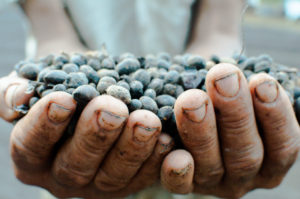The 4th World Congress on Agroforestry (Agroforestry 2019) aims to strengthen the links between science, society and public policies. Under the high patronage of Mr. Emmanuel Macron, President of the French Republic, the Congress is to be held at the Le Corum conference center in Montpellier on 20–22 May 2019. The Congress is a part of a Week of Agroforestry running from 19–23 May.
Open to researchers, students, farmers, NGOs, and political and economic decisionmakers, the Congress is expecting some 1,500 participants from more than 100 countries. FTA is a platinum partner for the event. It is being held in Europe for the first time, by the Agricultural Research Centre for Development (CIRAD) and the French National Institute for Agricultural Research (INRA), in partnership with World Agroforestry, Agropolis International and Montpellier University of Excellence. It will be preceded on 19 May by a day of events for the general public, organized by the Fondation de France and the French Association of Agroforestry.
“We wanted, through this general public day ahead of the congress, to make agroforestry better known to civil society”, explained Emmanuel Torquebiau, Agroforestry Project Manager at CIRAD and Chairman of the Organizing Committee of the 4th World Congress on Agroforestry.
Learn more: 4th World Congress on Agroforestry
Agroforestry, the future of agriculture?
The organizers aim to anchor the 4th World Congress on Agroforestry to the societal debate on agriculture. “It is time for technical solutions to be discussed within civil society and to become part of public policy”, commented Christian Dupraz, INRA Research Director and Chairman of the Scientific Committee of the Congress.
By combining science and dialogue with society, the Congress will be an opportunity to assess the contribution of agroforestry to the agro-ecological transition of agriculture at the global level.

Agroforestry, which involves combining trees with crops and pastures, is now recognized to protect soils, address climate change issues and contribute to global food security. This practice could therefore be the future of agriculture. The fields of application are very diverse: hedges and alignment of trees or shrubs in and around plots, multilayer agriculture, timber or fruit production in cropland, fodder trees, trees for honey, shade trees for perennial crops (coffee, cocoa, grapevines) or livestock, multilayer agroforests and agroforestry gardens.
An International Union of Agroforestry will be created at the Congress, to federate agroforestry innovations on a global scale. On Thursday, 23 May, participants will be able to visit the main European experimental agroforestry site at Domaine de Restinclières in Prades-le-Lez (11 km north of Montpellier) where cereals (durum wheat and barley rotated with protein peas) are grown with many tree species, particularly walnut trees. In more stony soils, vines are grown with pines and cormiers. This 50-ha experimental farm, which belongs to Hérault County Council, is scientifically managed by INRA Occitanie-Montpellier.
Originally published by CIRAD.











